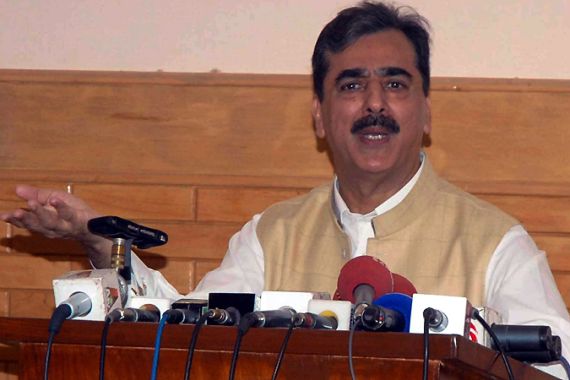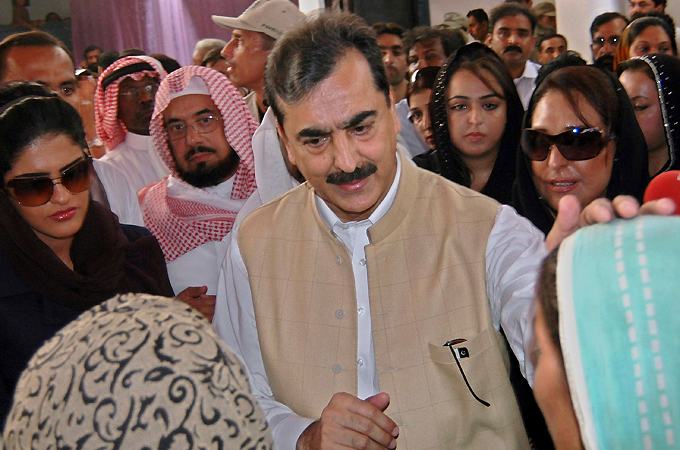Pakistan awaits statement on judges
Prime minister seeks to allay fears of clash between country’s executive and judiciary over corruption cases.

 |
|
Gilani’s remarks come as the government fights a legal battle over corruption charges concerning the president [EPA] |
The Pakistani prime minister is due to give a statement to the country’s chief justice to clarify the government’s position regarding plans to dismiss judges.
Yousuf Raza Gilani, who is due to make the statement on Monday, aims to allay fears of a looming clash between the executive and judiciary over longstanding corruption cases, having pledged to work with judges to uphold justice.
“There is no possibility of a clash between the state institutions in our presence,” Gilani said in a televised address on Sunday night.
“The executive and the judiciary will have to work together to provide legal, social and economic justice to the people.”
Gilani’s remarks came against the backdrop of a legal battle that the government has been fighting in the supreme court over corruption charges centering on Asif Ali Zardari, Pakistan’s president, that could test his authority.
Pakistan’s highest court has been locked in a standoff with Zardari’s administration since December, when its judges scrapped an amnesty that protected the president and 8,000 other people from corruption charges.
The court says that without an amnesty, the government must proceed with the cases, including a multi-million-dollar money-laundering case against Zardari in Switzerland that remains on hold.
But the government has so far stalled on the court’s request to send a letter to Swiss authorities to reopen the case, and judges on Wednesday criticised the government’s inertia.
Bargaining position
Aamir Latif, from Pakistan’s Online News Network, told Al Jazeera that despite the government being very unpopular, it is still in a good bargaining position.
“The government is very fragile … and its popularity is declining every day, but the army and the government are powerful,” he said.
“The confrontation between the government and the judiciary is assuming alarming proportions because of the non-implementation of the court orders, apparently at the behest of Zardari, who is a corruption-tainted man in Pakistan.
“But the government feels comfortable because it knows the establishment has no other choice at the moment. If it ousts the government, there would be a political crisis and there is no other party that could fill this gap.”
Zardari’s term in office is due to end in 2013, although few Pakistani civilian governments complete full terms.
The amnesty was codefied in October 2007 by then-president Pervez Musharraf, who was under international pressure to hold democratic elections and end about eight years of military rule.
Rehman Malik, the interior minister, and Ahmed Mukhtar, the defence minister, are among more than 30 politicians who had cases against them withdrawn under the amnesty which covers 3,478 cases ranging from murder, embezzlement and abuse of power to write-offs of bank loans worth millions of dollars.